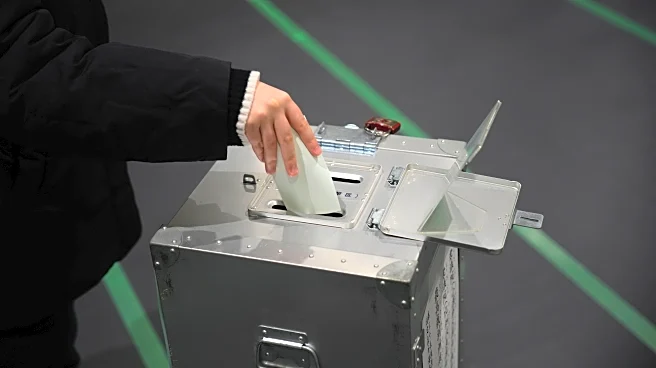What is the story about?
What's Happening?
Acadia Pharmaceuticals has announced the termination of its development program for intranasal carbetocin (ACP-101) following disappointing results from the Phase 3 COMPASS PWS trial. The trial aimed to evaluate the efficacy of carbetocin in treating hyperphagia in patients with Prader-Willi syndrome (PWS), a rare genetic disorder characterized by an insatiable appetite leading to obesity. The trial did not show any significant improvement over placebo in reducing hyperphagia or any secondary endpoints. Despite the setback, Acadia remains financially stable with two other approved products, Nuplazid and Daybue, expected to generate over $1 billion in revenue this year.
Why It's Important?
The failure of carbetocin in the COMPASS PWS trial highlights the ongoing challenges in developing effective treatments for rare diseases like Prader-Willi syndrome. With limited treatment options available, the discontinuation of carbetocin development leaves Soleno Therapeutics' Vykat XR as the only FDA-approved treatment for PWS. This outcome underscores the need for continued research and innovation in the field of rare genetic disorders. For Acadia, the setback is mitigated by its robust pipeline and existing revenue-generating products, allowing the company to maintain its growth trajectory.
What's Next?
Acadia plans to share a summary of the trial data with the PWS community to contribute to the broader understanding of the disorder. The company will focus on its other pipeline programs, with several Phase 2 and 3 studies expected to commence by 2026. The pharmaceutical industry and patient advocacy groups will likely continue to push for advancements in PWS treatment, emphasizing the importance of collaboration and innovation in addressing unmet medical needs.
















